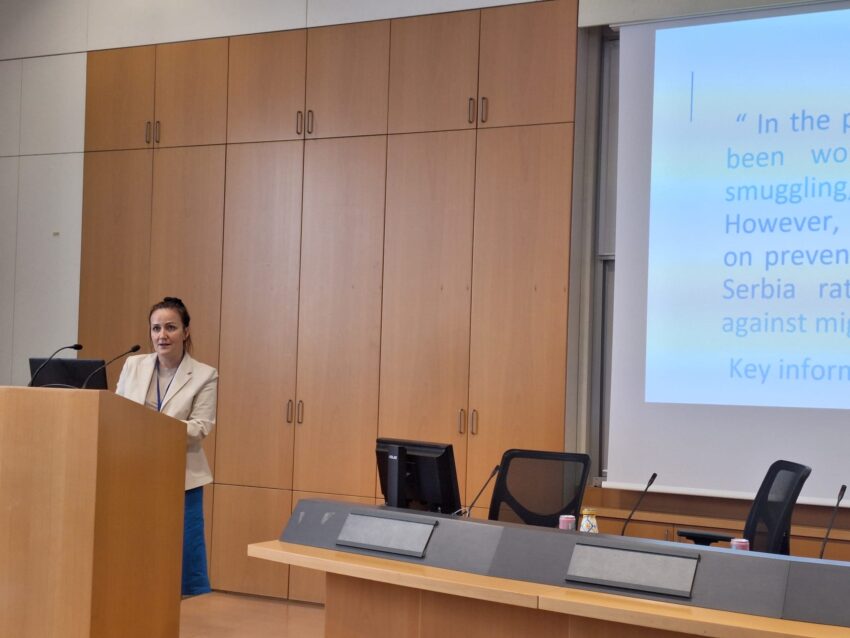In today’s world, where we are increasingly confronted with complex global challenges, ranging from conflict and climate change to social inequality and displacement, migration remains one of the most pressing and multifaceted issues of our time. Among its many dimensions, migrant smuggling raises serious legal and humanitarian concerns that demand a coordinated and thoughtful response.
I had the opportunity and privilege to deliver a presentation on the topic “Migrant Smuggling: Legal and Humanitarian Consequences” in Milan, as part of the GLITSS project. It was a particular honor to take part in a discussion and panel alongside Prof. Dr. Francesco Giumelli and Prof. Dr. Pim Geelhoed.
I addressed the challenges faced by countries such as Bosnia and Herzegovina, Serbia, and Albania, as well as international organizations. I placed special emphasis on legal aspects and the urgent need to strengthen international cooperation, alongside both humanitarian and legal actions.
I highlighted the current issues irregular migrants face, including exposure to violence, exploitation, and inhumane conditions during their journey. I also addressed the challenges faced by the societies along smuggling routes – from the strain on local resources to rising insecurity and the erosion of the rule of law.
I particularly stressed the need for a comprehensive approach that simultaneously protects the human rights of migrants and strengthens the capacities of communities affected by these complex phenomena.
Nevertheless, I am grateful for the meaningful conversations and the engagement of all those present. Events like these reaffirm the importance of continuous dialogue, collaboration, and informed policymaking when addressing the realities of migration in today’s world.
